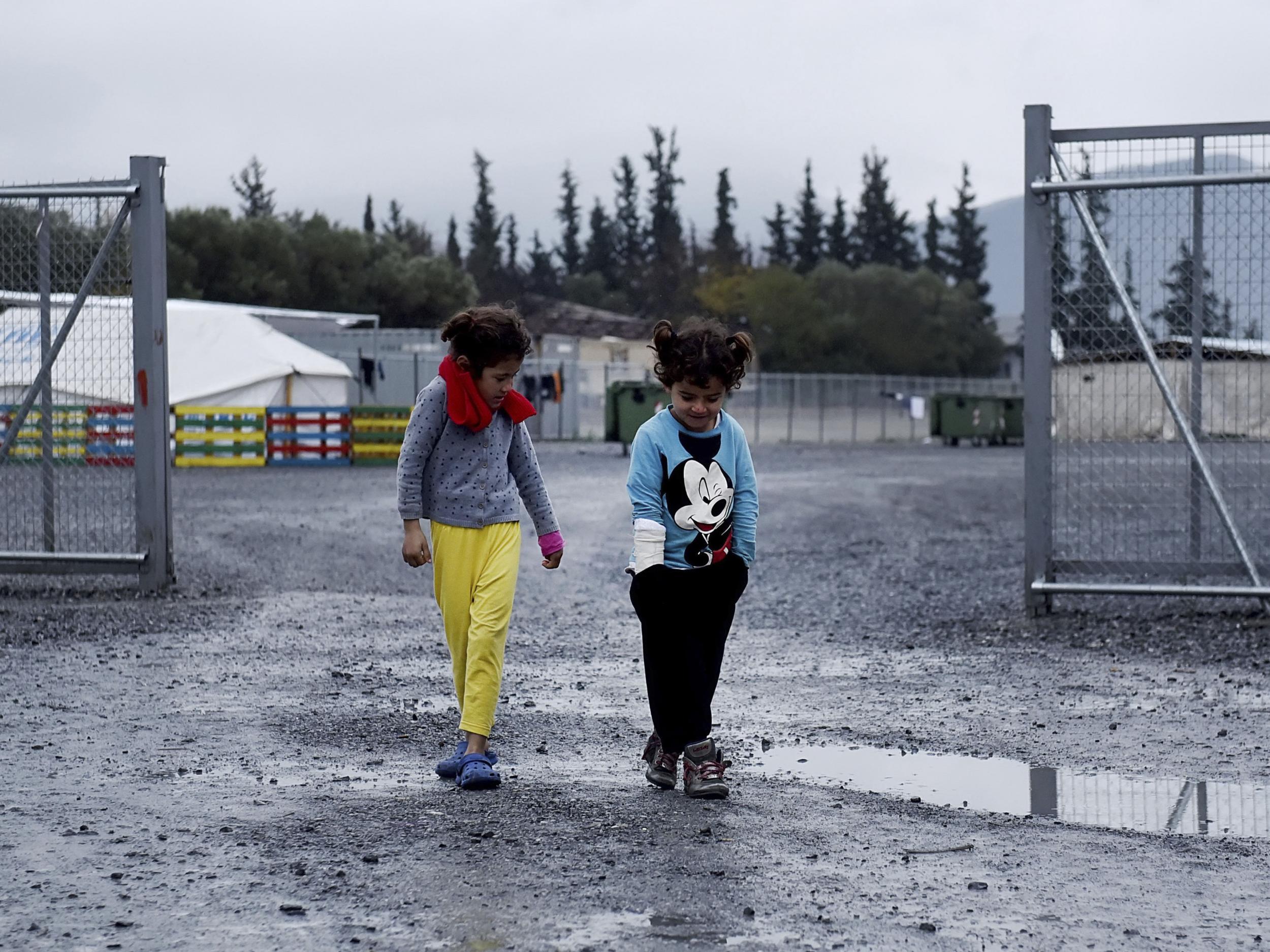Greece appeals to EU for support over plan to detain refugees in order to speed up deportations
Minister proposes segregating people from certain nations in 'pre-removal' detention centres

Your support helps us to tell the story
From reproductive rights to climate change to Big Tech, The Independent is on the ground when the story is developing. Whether it's investigating the financials of Elon Musk's pro-Trump PAC or producing our latest documentary, 'The A Word', which shines a light on the American women fighting for reproductive rights, we know how important it is to parse out the facts from the messaging.
At such a critical moment in US history, we need reporters on the ground. Your donation allows us to keep sending journalists to speak to both sides of the story.
The Independent is trusted by Americans across the entire political spectrum. And unlike many other quality news outlets, we choose not to lock Americans out of our reporting and analysis with paywalls. We believe quality journalism should be available to everyone, paid for by those who can afford it.
Your support makes all the difference.Greece has appealed to the EU to support its plan to reduce the numbers of migrants living in overcrowded refugee camps on the Aegean Islands.
The country suggests segregating people from nations with a “low recognition rate” of asylum eligibility – namely Algeria, Pakistan and Morocco – along with migrants judged to be behaving improperly in “pre-removal” detention centres on the mainland.
But human rights organisations have previously argued that singling out certain nationalities for removal is “arbitrary and illegal”.
The request comes after the European Commission announced that member states should be able to send asylum seekers back to Greece from March 2017.
Under EU rules the first country of entry must process an asylum seeker's claim, but that system collapsed in 2015 when Greece was overwhelmed by a million people trying to use it as a gateway to richer European states.
Other EU countries reacted by closing their borders, leaving some 62,000 stranded in Greece. Refugee camps on the Greek islands are in some cases operating at double capacity and have become squalid, according to humanitarian agencies.
A letter to to the EU interior ministers and the EU Commission on Friday, Greek Migration Minister Yiannis Mouzalas said the overcrowding – on Chios, Samos, Leros and Kos – was mostly down to migrants whose asylum claims were “manifestly unfounded”.
“It is important to address the concerns of the local population and curb the adverse reactions already noted in many islands where the situation is difficult,” he said.
He added that the Greek government thought migrants from countries where there is only a slight chance of achieving asylum should be transferred to “pre-removal centres” on Greece's mainland where they will be kept under tight security before being returned to Turkey.
Mr Mouzalas claimed this would not be a long term solution and promised “special units” in the centres that would make a decision on an applicant's asylum claim within a three-week period.
The proposals are likely to meet opposition from humanitarian groups, who may argue that the suggestions contavene the UN 1951 Refugee Convention by “arbitrarily” discriminating against asylum-seekers based on their nationality.
He sent the letter to both to the EU interior ministers and the EU commission, urging them: “Your support is requested to make the... emergency action possible, to help decongest the islands smoothly, effectively and immediately.”
Some 16,300 refugees are now thought to be living on the Aegean islands in camps that often lack basic services. According to Human Rights Watch, due to a lack of space in the official shelters, unaccompanied children have been detained, sometimes with adults.
Aid workers have also reported that lack of proper drainage systems in the camps mean the tents flood when it rains.
While the rate of those making the dangerous oversea journey to Greece has lowered since March, when the EU signed a deal with Turkey, the processing of asylum claims has been painfully slow.
UNHCR spokesperson William Spindler said: “As of 7 December, only 6,259 asylum seekers had left Greece under the EU Relocation Mechanism, less than 10 per cent of the 66,400 agreed last year.
“This is an unacceptably poor response, causing unnecessary uncertainty for people, affecting children including those who are unaccompanied, and prolonging a humanitarian situation for Europe that should have been resolved months ago and which risks encouraging people to move on with the help of smugglers.
“UNHCR appeals to European countries to do the right thing, by ending this situation without further delay.”
The International Rescue Committee said is was “gravely concerned” about the vulnerable lives living in the camps amid freezing winter conditions.
In response the the EU’s announcement that member states should be able to send migrants back to Greece from March, head of the organisation’s Brussels office Imogen Sudbery said: “The responsibility for this response cannot continue to be levelled at Greece.
“It’s the EU’s duty to find holistic and workable solutions that work for all member states, but, most crucially, for refugees.”
Join our commenting forum
Join thought-provoking conversations, follow other Independent readers and see their replies
Comments